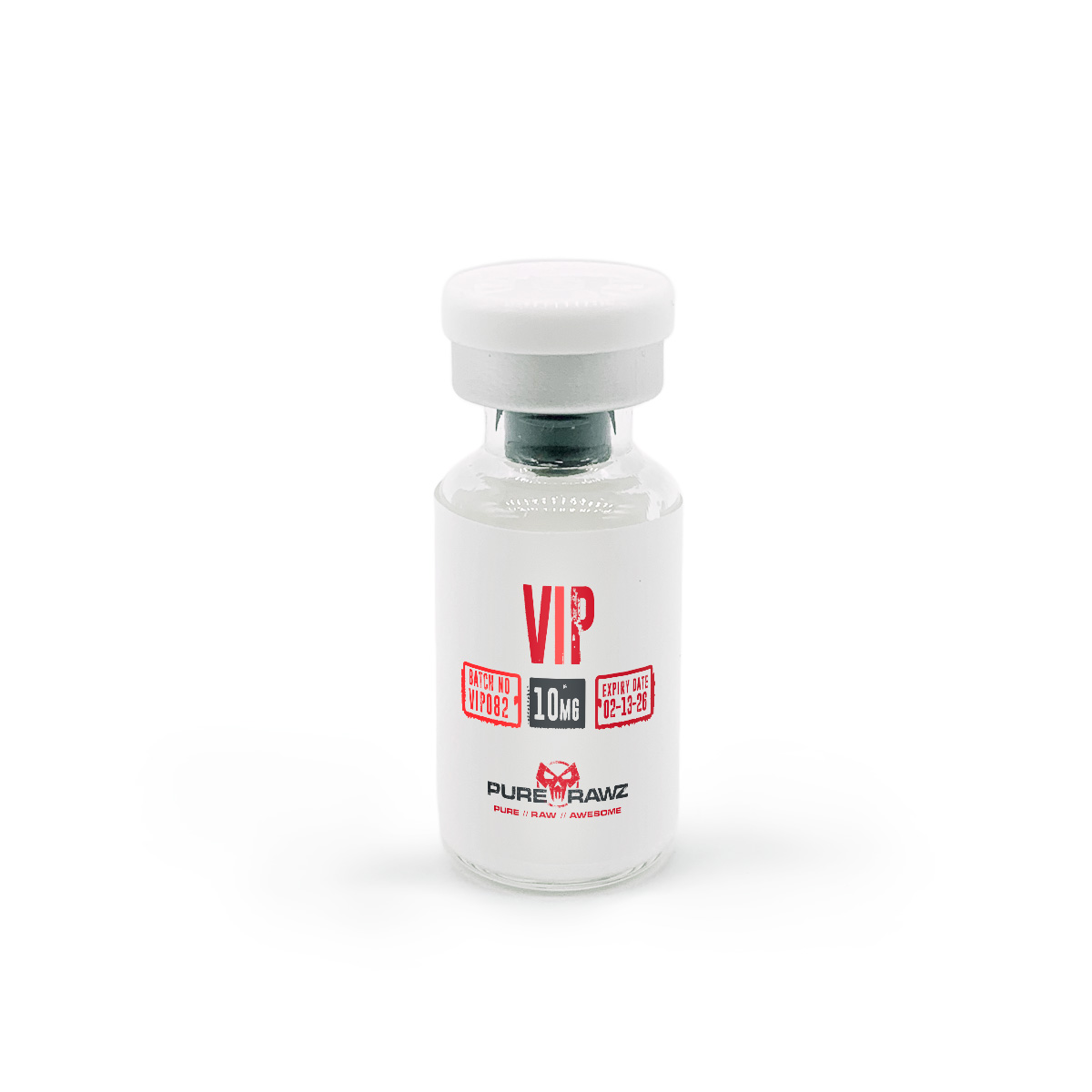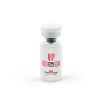VIP (Vasoactive Intestinal Peptide)
Price range: $42.48 through $95.35
Earn 42 - 95 points upon purchasing this product.
For optimal stability and integrity, we recommend reconstituting all peptides with bacteriostatic water, as reliability cannot be guaranteed with alternative solutions.
- 1st and 3rd Party Verified for 99% Purity
- Free Shipping on Orders Over $100+
Enjoy 24/7 customer support, 1st & 3rd party verified 99% purity, and free shipping on orders over $100!
Description
What is VIP?
Vasoactive Intestinal Peptide (VIP) is a 28-amino acid peptide hormone found in the intestines, pancreas, and central nervous system. It is involved in various important bodily functions, such as heart contraction, blood circulation, energy production, blood pressure regulation, and smooth muscle relaxation.
Chemical Properties
| Product Name | VIP (Vasoactive Intestinal Peptide) |
| CAS Number | 40077-57-4 |
| Molecular Formula | C147H238N44O42S |
| Molecular Weight | 3325.80 g/mol |
| Storage | -30°C to -60°C |
| Form | Powder |
| Quantity | 0.5 mg |
How does it work?
VIP is a potent vasodilator, which relaxes or dilates the blood vessels and smooth muscles. This significantly improves blood flow to the different body parts. Since blood contains oxygen and essential nutrients, VIP helps relax these vessels and smooth muscles. Research indicates that this may benefit the body’s system.
What are the potential benefits of VIP?
Research on VIP is ongoing. However, preliminary research has shown the following potential benefits:
- It may lower the risk of heart diseases.
- It may promote healthy lungs.
- VIP may promote wound healing.
- It may also regulate blood pressure.
- It could promote a healthy digestive system.
- It is being researched for potential anti-cancer properties.
- It may help boost immunity.
- VIP may improve mental health.
Note: This product is intended for research purposes and is not approved for human consumption.
Research on VIP
Lowers the Risk of Heart Disease
Vasoactive Intestinal Peptide may help relax blood vessels, improving blood flow. This may reduce high blood pressure, lowering the risk of heart disease. VIP also decreases inflammation, which may protect the heart. It might prevent blood clots that can block arteries. However, more research is required.
Promotes Healthy Lungs
VIP plays an important role in keeping the lungs healthy. It may relax the muscles around the airways, making breathing easier. VIP may also reduce lung inflammation, helping conditions like asthma and COPD. It may protect lung cells from damage caused by toxins. By improving oxygen flow, VIP supports overall lung function.
Promotes Wound Healing
VIP may help the body heal wounds faster. It may reduce swelling and prevent infections. VIP also increases the production of new skin cells. It might also improve blood circulation, bringing more nutrients to the wound. This helps the skin repair itself efficiently. Further studies are required to understand its efficacy.
Where to buy VIP online for research purposes?
If you are looking to buy VIP for research, PureRawz is a trustworthy source.
We provide reference materials for every product we offer. Each product includes a Certificate of Analysis from an independent lab, confirming its identity, purity, and strength.
Is it legal?
No, VIP is not approved for medical use. It is an experimental drug currently being studied in preliminary and clinical trials. Clinical research is required to determine its efficacy. This is why it is not approved for human consumption by the FDA.
FAQs
What conditions is VIP being researched for?
VIP is being researched for heart disease, mental health, lung disorders, and inflammatory diseases.
Is VIP safe for human consumption?
No, VIP is not safe and is not approved by the FDA. It is strictly intended for research purposes only.
What are some potential side effects of VIP?
As a research compound, its full side effects are still unknown. However, studies show that some potential side effects include headaches, low blood pressure, rash, and digestive issues.
How should this product be stored?
It is best to store this product in a cool, dry place away from direct sunlight. This helps extend the shelf life of the product.
Disclaimer
This information is for educational purposes only and not medical advice. Products are for research use only. Research must follow IRB or IACUC guidelines. Verify information independently before purchasing. By ordering, you agree to our Terms and Conditions. If you are not 100% satisfied with the product you received, please contact us at support@purerawz.co
ATTENTION: All our products are for LABORATORY AND RESEARCH PURPOSES ONLY, not for veterinary or human usage.










Reviews
There are no reviews yet